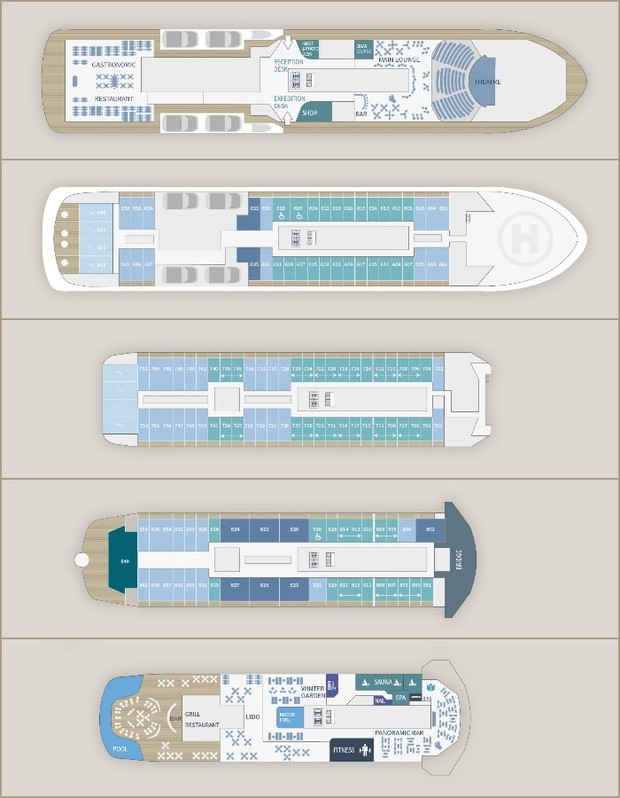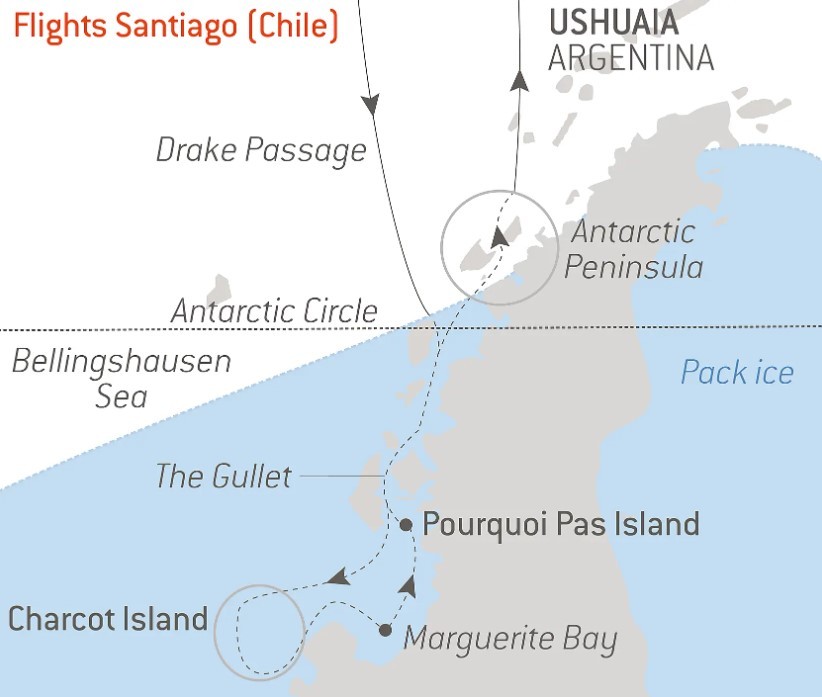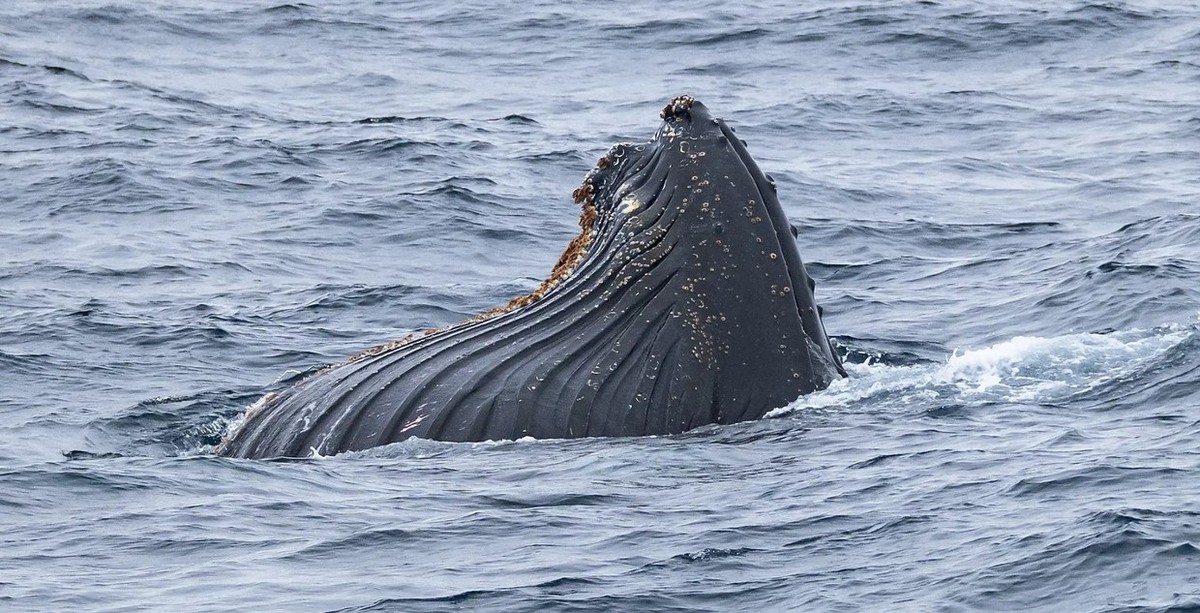
Your journey aboard Le Commandant Charcot will begin with your first look at this strikingly elegant ship, capable of navigating our planet’s most extreme environments. You are about to begin an adventure that will lead you to the edges of the Earth, on the continent that no people have ever inhabited, the Antarctic. But while these lands belong to no one, they have been the theatre of the greatest expeditions and have proven the heroism exemplified by certain men. From the Antarctic Peninsula to the Bellingshausen Sea and its unknown islets, Le Commandant Charcot will humbly take you on a 15-day exploration of the Far South, in the wake of the legendary man to whom it owes its name.
After crossing the mythical Drake Passage, beaten by the winds and home to soaring cape petrels, you will glimpse the last continent on the horizon. Jean-Baptiste Charcot led his first journey to the Antarctic over a century ago, but his exploits still resonate and his traces are tangible here. His first expedition with the ship Le Français built his legend and made a mark on Salpêtrière Bay. A little further south lies Marguerite Bay, which he explored during his second expedition. He named this mountainous and magnificent land after his wife and Pourquoi-Pas Island after his eponymous ship. At the exit of the Lemaire Channel, Petermann Island still holds memories of the wintering of this exceptional expedition.
As you sail on exploring the Bellingshausen Sea, the conditions become increasingly extreme. Ice takes over your horizon, the ice floe stretches out, and icebergs drift around you. The approach to Charcot Island guarantees intense emotions and gives you the unique feeling of being among the privileged few able to contemplate it.
Throughout your journey, our team of passionate experts will go over all the details of these historic exploits with you while sharing their in-depth knowledge of the wildlife and landscapes. You will have the chance to observe Adelie, Gentoo and chinstrap penguins and perhaps even some young emperor penguins on the edge of the ice floe. Leopard, crabeater and Weddell seals, humpback and Mink whales, and orcas also live in these southern waters that you will sail through like those men of legend did before you.
- An exploration aboard Le Commandant Charcot, following in the footsteps of Jean-Baptiste Charcot’s two great polar expeditions, to the Bellingshausen Sea, exploring abundant biodiversity.
- Cross the Arctic Circle and the exploratory approach of the distant Charcot Island.
- Outings and shore visits in a zodiac inflatable with a reinforced team of naturalist guides.
- Conferences and information meetings on board with our passionate experts, specialists in the fauna, flora and history of the polar regions.
- Landscapes: immense glaciers, monumental icebergs, immersion in the heart of the ice floes.
- Wildlife: Adelie, chinstrap and Gentoo penguins; leopard, crabeater and Weddell seals; humpbacks,
- Minke whales and orcas, and the possibility of observing emperors penguins and Ross seals.
- Many activities: kayaking, hiking or snowshoeing, polar plunge without suit.
- For your comfort, your cruise package includes an overnight in Santiago the day before embarkation, transfers and flights Santiago/Ushuaia (for details, see the ‘Included in your cruise’ tab).
Prices quoted here are often dependent on currency fluctuations. Please check with (01432 507450 or info@small-cruise-ships.com) for the very latest price, which may well be cheaper than the one advertised here.
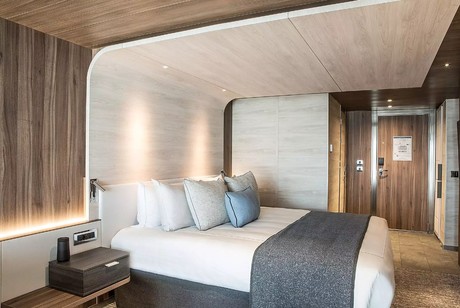
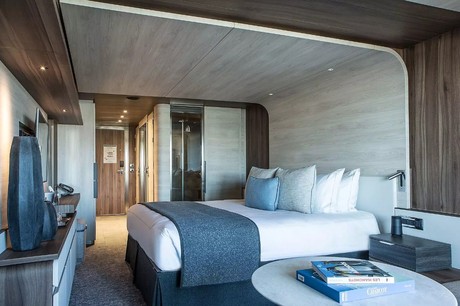
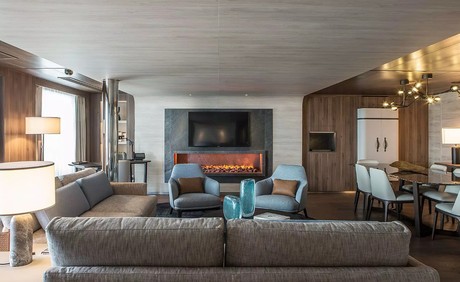
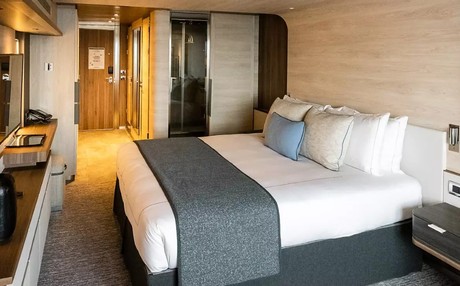
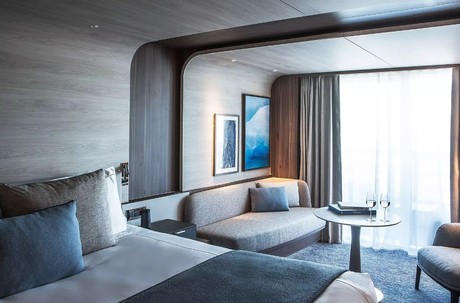
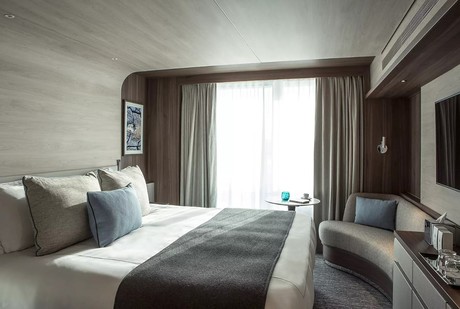
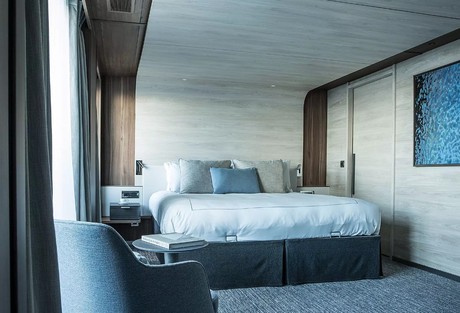
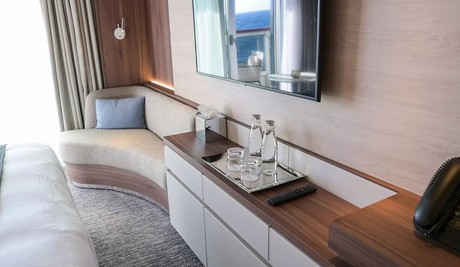
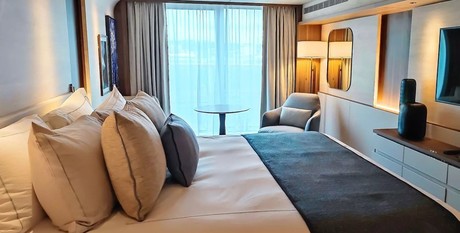
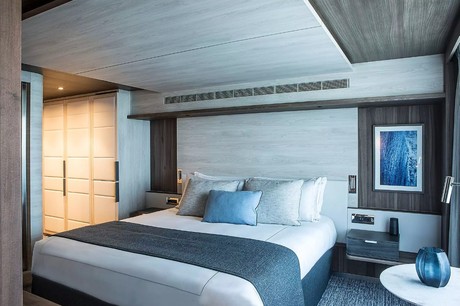
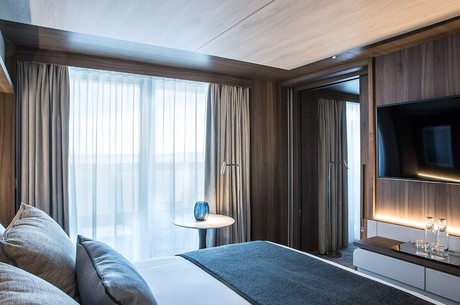
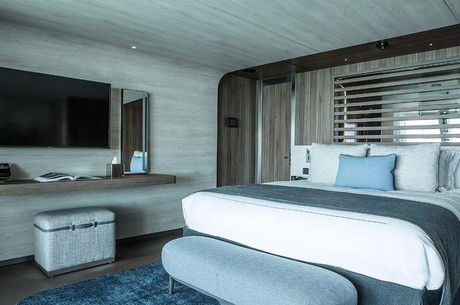
Prices quoted here are often dependent on currency fluctuations. Please check with (01432 507450 or info@small-cruise-ships.com) for the very latest price, which may well be cheaper than the one advertised here.












Prices quoted here are often dependent on currency fluctuations. Please check with (01432 507450 or info@small-cruise-ships.com) for the very latest price, which may well be cheaper than the one advertised here.












Overnight in Santiago + flight Santiago/Ushuaia
Capital of Argentina's Tierra del Fuego province, Ushuaia is considered the gateway to the White Continent and the South Pole. Nicknamed “El fin del mundo” by the Argentinian people, this city at the end of the world nestles in the shelter of mountains surrounded by fertile plains that the wildlife seem to have chosen as the ultimate sanctuary. With its exceptional site, where the Andes plunge straight into the sea, Ushuaia is one of the most fascinating places on earth, its very name evocative of journeys to the unlikely and the inaccessible…
Use your days spent in the Drake Passage to familiarise yourself with your ship and deepen your knowledge of the Antarctic. The Expedition Leader will first present the IAATO rules of conduct that must be observed during landings in the region and will explain everything you need to know about the zodiac outings. Lectures about the history and wildlife of the Antarctic will be an opportunity for you to learn more about this magical region, where every cruise is a unique experience. You will experience exceptional sailing moments on board and join the naturalist-guides on your ship’s exterior decks to look out for albatrosses, cape petrels, and other seabirds flying over the Drake Passage.
Weather permitting, we'll cross the mythic line of the Antarctic Polar Circle, located along 66°33’ south of the Equator. This iconic area demarcates the point from which it is possible to view the midnight sun during the December solstice. Within this circle, the sun remains above the horizon for 24 consecutive hours at least once a year. Crossing this line, an experience known to few people, is sure to be an unforgettable highlight of your cruise through the polar regions.
The sumptuous landscapes of this narrow channel between Adelaide Island and Graham Land attract all visitors sailing towards Marguerite Bay. It is like an ice palace, its immaculate white walls reflected in the frozen mirror formed by the waters of the Southern Ocean, scattered with icebergs and gleaming blocks of ice. This passage was explored for the first time by the Jean-Baptiste Charcot expedition in 1909, which sketched its position. It was then surveyed in 1936 by the British expedition under John Rymill. It is here in this magical setting that some of the first subaquatic images of the Antarctic were shot during Philippe Cousteau’s four-month expedition to Antarctica between 1972 and 1973.
When he discovered this island surrounded by sea ice in 1910 from aboard the Pourquoi Pas ? as he mapped Alexander Island, Jean-Baptiste Charcot had not be able to get less than 40 miles away from it. Situated in a zone that experiences frequent low-pressure systems and regular cloud cover, the island remains in many ways an enigma. It is entirely covered in ice and sheer cliffs, with the exception of the rocky outcrops extending over a dozen kilometres in the far north-west. The ice in the narrowest part of Wilkins Sound has been cracking in recent times, thus officially detaching this island from its neighbour, Alexander Island, lying 50 km away. Very few people have landed on this largely untouched island, whose waters attract numerous seabirds, such as petrels, Antarctic terns and skuas.
Stretching from the west of the Antarctic Peninsula to the Amundsen Sea, the Bellingshausen Sea was named after the Russian admiral and explorer who has been attributed the first confirmed sighting of mainland Antarctica, in 1820. Among others, its waters surround two of the Antarctic’s largest islands: Alexander Island and Thurston Island. You will explore this sea amid ice floe, blocks of sea ice and majestic icebergs. The coastal areas along the Bellingshausen Sea are also renowned as the home of colonies of emperor penguins. Depending on the month of the southern summer, you will perhaps be lucky enough to observe isolated adults, adolescents seeking emancipation or recently independent new adults.
Spend exceptional moments sailing aboard Le Commandant Charcot, the world’s first luxury polar exploration vessel and the first PC2-class polar cruise ship capable of sailing into the very heart of the ice, on seas and oceans which the frozen conditions render inaccessible to ordinary ships. Le Commandant Charcot is fitted with oceanographic and scientific equipment selected by a committee of experts. Take advantage of the on-board lectures and opportunities for discussion with these specialists to learn more about the poles. Participate in furthering scientific research with PONANT and let us discover together what these fascinating destinations have yet to reveal to us.
The icebergs are each more majestic than the next and scattered around the deep and intense blue waters of Marguerite Bay, one of the most beautiful regions in the Antarctic. It is delimited in the north by the mountainous Adelaide Island, in the south by George VI Sound and Alexander Island, and in the east by the Fallières Coast. Charcot named it after his wife during his second expedition to the Antarctic between 1908 and 1910. In 1909, in the southern summer when the skies are at their clearest, he led an important scientific mission to map and study this region. The bay is home to a number of cetaceans and you may get the chance to observe leopard seals or Adelie penguins.
Le Commandant Charcot will land on the coast of Pourquoi Pas Island, so named in the 1930s by John Riddoch Rymill in honour of Jean-Baptiste Charcot, who discovered it from aboard his ship Le Pourquoi Pas ? during his second expedition to Antarctica between 1908 and 1910. This mountainous island, situated in the north of Marguerite Bay between Graham Land and Adelaide Island, is 28 km long and 14 km large. It is scattered with narrow fjords and snow-covered mountains. You will go to shore in a zodiac dinghy with your expedition team and you could get the chance to observe Adelie penguins going about their business on the island’s rocky shores.
Succumb to the magic of a place unlike any other. To this day, the mythical Antarctic Peninsula still holds real fascination and promises its visitors unforgettable moments. Throughout your adventure in this icy realm, you will find yourself in the heart of a spectacular decor in subtle shades of blue and white, surrounded by exceptional wildlife. Penguins, humpback whales, seals and giant petrels are at home here, as are elephant seals, fur seals, Antarctic minke whales, and orcas. Depending on which sites you will be lucky enough to visit, you may get the chance to observe them and share with them the beauty of these extreme parts.
Each day, based on ice conditions, the Captain and the Expedition Leader will suggest zodiac outings or landings to discover the infinite riches of the Antarctic Peninsula. Glaciers, ice floe, tabletop icebergs, mountain peaks that plunge straight into the sea, volcanic beaches, research stations, enchanting bays, and vestiges of the whaling industry: these are the faces of the Antarctic that will likely reveal themselves to you, in a hushed and surreal atmosphere. You will sail in the wake of Jean-Baptiste Charcot, Adrien de Gerlache and Sir Ernest Shackleton, great Antarctic explorers who, from the 19th century, set out to conquer these remote and uninhabited lands.
If there is one place, one sea, one waterway dreaded by tourists, researchers and hardened seafarers alike, it is undoubtedly Drake Passage. Situated at the latitude of the infamous Furious Fifties winds, between Cape Horn and the South Shetland Islands, it is the shortest route to connect Antarctica to South America. Seasoned navigators will tell you that you must earn your visit to the White Continent! As the Antarctic convergence zone where cold currents rising up from the South Pole meet warmer equatorial water masses, Drake Passage harbours a very diverse marine fauna. Don't forget to look to the sky to catch a glimpse of elegant albatross and Cape petrels, playfully floating about in the wind around your ship.
Capital of Argentina's Tierra del Fuego province, Ushuaia is considered the gateway to the White Continent and the South Pole. Nicknamed “El fin del mundo” by the Argentinian people, this city at the end of the world nestles in the shelter of mountains surrounded by fertile plains that the wildlife seem to have chosen as the ultimate sanctuary. With its exceptional site, where the Andes plunge straight into the sea, Ushuaia is one of the most fascinating places on earth, its very name evocative of journeys to the unlikely and the inaccessible…
We are privileged guests in these extreme lands where we are at the mercy of weather and ice conditions. Our navigation will be determined by the type of ice we come across; as the fast ice must be preserved, we will take this factor into account from day to day in our itineraries. The sailing schedule and any landings, activities and wildlife encounters are subject to weather and ice conditions. These experiences are unique and vary with each departure. The Captain and the Expedition Leader will make every effort to ensure that your experience is as rich as possible, while respecting safety instructions and regulations imposed by the IAATO.
Le Commandant-Charcot
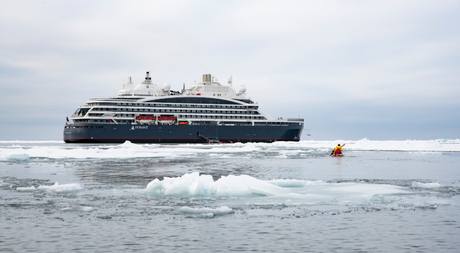
| Cabins and suites | 135 |
|---|---|
| Built | 2019 - 2020 |
With its hybrid propulsion combining liquefied natural gas (LNG) and electric generators, Le Commandant-Charcot has been designed to minimise the environmental impact of travel to the furthest latitudes.
The decoration of the ship, designed by two internationally renowned design and architecture firms - the studio of Jean-Philippe Nuel and Wilmotte & Associés - is designed to be in harmony with the environment. The approach is contemporary with the desire to create a warm and elegant setting; stone, wood and leather recall the natural environment in which the ship is sailing.
Equipped with just 135 staterooms including 31 suites with balconies and outside views, Le Commandant-Charcot welcomes you in an intimate and refined atmosphere. Outstanding gastronomy in the two restaurants, relaxation in the indoor pool surrounded by its winter garden, relaxation in the well-being area with sauna and Snow Room... Like on a private yacht, each of our guests is unique.
PUBLIC AREAS
Le Commandant-Charcot has many common areas that are designed and equipped to meet all of your needs while preserving the intimacy of each passenger. A 177 m² reception area includes: A reception/concierge desk, An expeditions desk, The ship’s administrative services, The sales office, manned by our Hospitality & Travel Manager officer, Our boutique which sells clothing, jewellery, beauty products, postcards and various accessories, The image & photo desk.
The different lounges include a 302 m² main lounge including a 28 m² cigar lounge, a tea corner and a bar, with live music on selected evenings, A 400 m² panoramic bar and lounge, An open-air Bar.
The recreation spaces
- Fitness & Beauty Corner: Fitness room: Elliptic, running machines, bicycles...
- Beauty Corner: Hairdresser, Massage rooms, Sauna, Snow Room, Nail Shop.
- Pool area: Indoor Pool and winter garden - Outdoor Pool
Theatre: Capacity: 270-276 - Main show room for conferences and live entertainment on selected evenings - State-of-the-art audio and video technology.
Leisure area: Public areas - Library - Medical centre.
16 Zodiacs on board.
